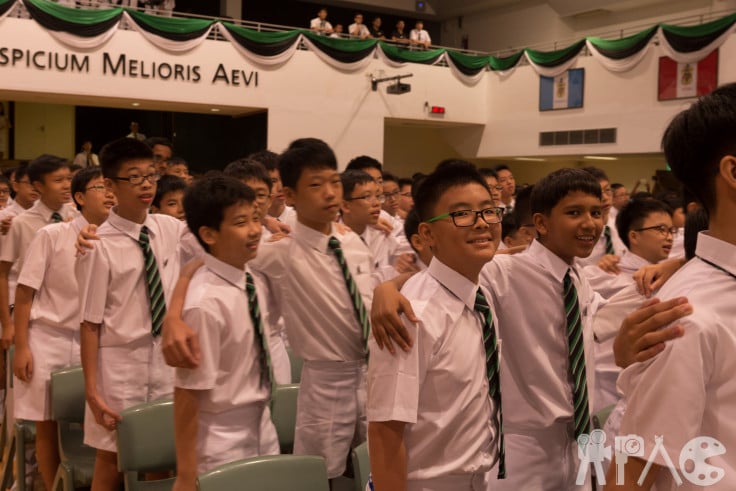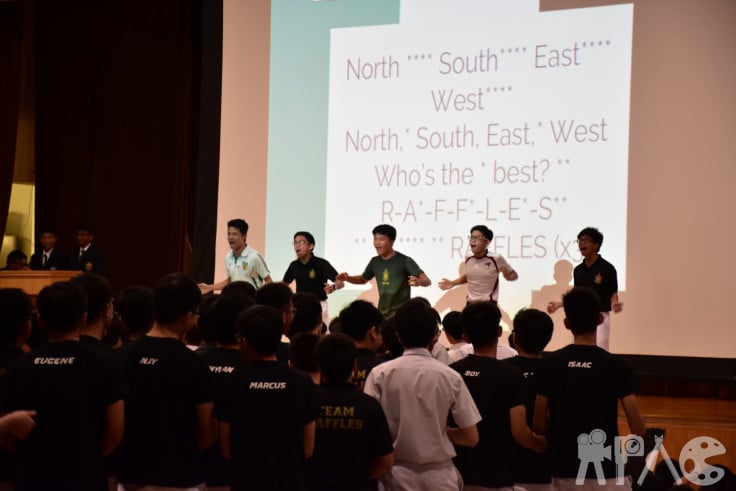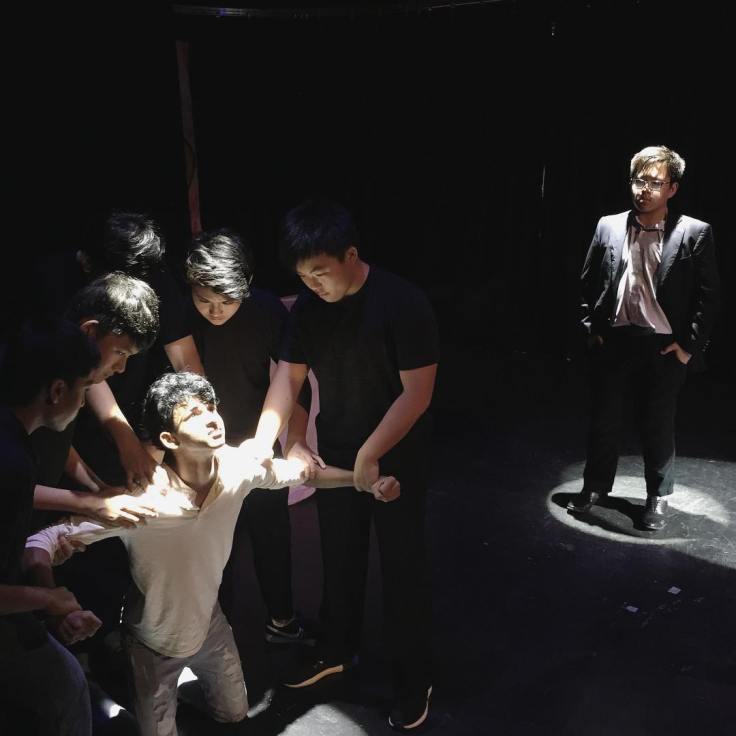The space between PSLE and Secondary 1 is often crowded more with ‘Are you excited?’ and ‘It’s going to be big jump you know!’ than with real tips. As a result, it really does end up being an immense jump.
RI is filled with such a myriad of programmes, both academic and beyond, that our excitement is quick to convolute into utter confusion in the briefings to come, and the campus, full of promise, becomes chaotic. Perhaps, we now imagine, had there been an unofficial student handbook of sorts, to tell us the things we only learnt far later, life in Year 1 would have been easier. Well, it has arrived.
A word of caution: If you came for a ‘Things the school administration won’t tell you’ student guide or an article of secrets that you can exploit to get straight 4.0s, we regret to inform you that this is not the guide that you are looking for. If, however, you’re hoping to find out more about things that you (eventually) figure out along the way in RI that you end up wishing you’d known earlier, then grab a cup of tea, and enjoy.

CCA
The newfound importance of CCA is one of the more jarring changes. After missing 10 consecutive sessions of CCA in Primary 4 with no real consequences, you are generally inclined to wonder ‘Why are these people so obsessed with CCAs?’
In RI, your CCA can occupy up to 10.5 hours weekly, or maybe more. It’s up to you if you want to spend that time in pure agony or pure joy. CCA is usually on Mondays and Wednesdays, immediately after 8 hours of school. Some exceptions aside, most CCAs are also on Friday, when you’ll be desperate to claw your way through and reach the weekend. If you choose a CCA that you don’t like for shorter timings or for college profile building, your suffering will only be exacerbated during these already tiring times of the week.
On the other hand, if you choose your CCA based on your hobbies or passions it can become something to look forward to and something to energise you at the end of a long day. Even if you apply and don’t get into your CCA of choice don’t be too disheartened, as there will be opportunity after opportunity to try and move.
That said, if you are happy in your CCA, then stay. Transferring later is generally discouraged and adapting can be difficult, as CCAs are tightly-knit groups and trying to inject yourself into their group once you are in Year 2 or later is not easy.
Academics
Coming into RI, you would have already anticipated that it is quite a stressful and competitive environment. I take no pleasure in informing you that you are completely right! Your sneering nemesis is not your only concern anymore. Grades are casually compared among friends and expect mockery from anyone who has beaten you. While friendly in nature, this sort of ‘bantz’ can be disheartening and puts a lot of stress on you to pull your grades up in future summatives and exams.
Another issue is the curious PSLE phenomenon. While you’d imagine PSLE to be the peak of your stress until Y4 Final Exams, you will somehow find yourself in equal or more stress to what you had experienced in PSLE during all future exams. Nonetheless, there is a silver lining. Your suffering is shared with all your peers, and so are your notes. Exams may be tough, but expect seniors to pass down notes, expect the smartest kid in class to help some of the weaker students and expect your peers to invite you to collaborate and conquer the exams together. Friendships in RI are formed in the crucible of exam suffering. When the teasing fades away, if your friends see a frown on your face they’ll try their best to console you.
Social pressure aside, results really do matter. Most see Year 1-3 as less important than Year 4 and feel it isn’t as bad to underperform in these early years. While it is true that most colleges may ignore Y1-2 results, they are still crucial in RI. Year 1 results determine your eligibility for continuing in an elective programme or your Third Language. These are great sources of enrichment in your area of interest and can also pull up your GPA if you are especially skilled in one of these areas.
Next, Year 2 results will determine your subject combination and Raffles Academy (an optional higher-level programme) eligibility.

All these things will stick with you until Y4 and having all the subjects of your choice makes a difference day-to-day and in your final results.
Speaking of subjects, the ramp up from 4 to 7 in Y1-2 examinable subjects and up to 10 in Y3-4 is another tough adjustment. Having 3 sciences and 3 humanities to master means a lot more content to absorb every single day and a lot more content to revise when exams come up. Additionally, content in most subjects becomes harder to remember. You begin to learn fewer concepts and more facts, techniques and formulas. It’s still about understanding, but now with a lot of memorising thrown into the fray.
The best way to cope is to take down notes obsessively. RI’s syllabus is unique, and you can no longer learn everything off textbooks. Gain everything you can in class and be sure to note them down, because textbooks can only supplement your classroom education.
An Unsatisfactory Conclusion
Of course, I can’t tell you in advance everything you’ll learn along the way in RI. The beauty of RI is that no two students will have the same journey. The wealth of options available in subject choices and in extracurricular activities in the school means that what you learn and what you do in the school is all up to you and all based on you. The less than beautiful side of this is that you will often find yourself swarmed with choices at the start and end of the year. Those choices and the ability to create your own path is, to me, one of the greatest things in RI. Unfortunately, no tips can be given on what choices to make (Uniformed Groups get the most service hours – you didn’t hear it from me) and all I can say is to make choices based on what you like and want to do, not what you think you should do.
